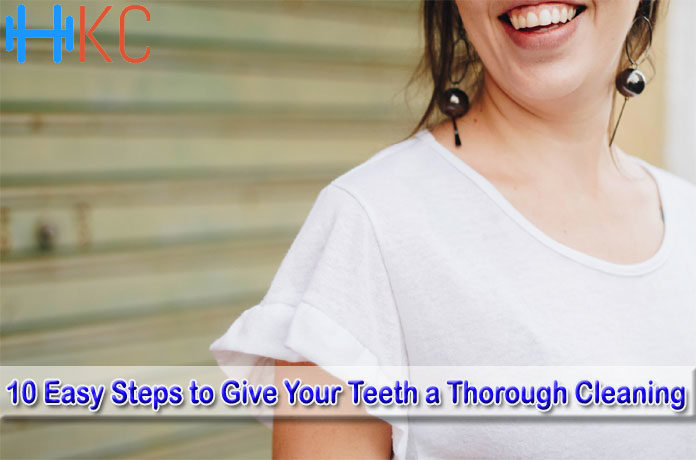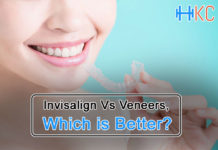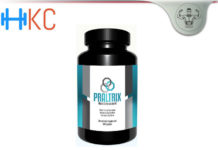Good dental hygiene is a cornerstone of any healthy, well-rounded lifestyle. Dental problems are sometimes painful, expensive and difficult to treat. Unfortunately, for many people who encounter them, the damage is often done long before they realize it.
Some of the worst oral hygiene habits (like not brushing before bed or going weeks without flossing) inevitably cause further damage if we don’t remove them from our daily routines. Getting your oral hygiene on track requires swapping out those bad habits for good ones. Once you work to integrate the proper dental care into your life, you’ll be on your way to stronger teeth.
Here are some practical tips that will help point you towards a healthy, gleaming smile:
1) Get your brushing schedule straight
The American Dental Association will tell you that brushing your teeth for two minutes twice a day to remove plaque is the most important part of your oral hygiene regimen. Make sure you brush first thing in the morning and right before bed.
Saliva, which fights off plaque, dries up at night and gives plaque a chance to form while you sleep. Your teeth are vulnerable at these times of day, making it the most crucial time to clean them.
Also, be sure to rinse with an antiseptic mouthwash to help kill the bacteria that cause plaque.
2) Use fluoride toothpaste
There is no question that fluoride protects tooth enamel and can reverse early signs of tooth decay. Fluoride restores the minerals in your teeth to strengthen your enamel.
If you want to have strong teeth for years to come, always use toothpaste that contains fluoride. Research has shown that fluoride is safe and beneficial in the amounts contained in toothpaste and drinking water, and it does help to prevent tooth decay.
3) Clean your teeth with care
A common mistake people make when cleaning their teeth is brushing too hard and too fast. As you get older, the enamel on your teeth erodes naturally. Brushing too fast or too hard will wear it away even faster, making your teeth more porous and sensitive. Even worse, brushing too aggressively can cause your gums to recede – a problem which even the best dentist can’t fix.
Brushing slowly and gently in a circular motion for two minutes will keep your teeth strong while simultaneously giving them the healthy cleanings they need each day. Maintaining the correct brushing technique is a critical way to manage tartar build up and protect your teeth.
4) Floss
Next to brushing, flossing between your teeth is perhaps the most important step of maintaining good oral hygiene. Flossing not only removes the food debris from between the teeth, but it also cleans under the gum line where plaque and food debris collect. When the floss removes this debris, it allows the toothbrush bristles to reach into the gum line more effectively than if you were to simply brush without flossing beforehand.
Just like brushing, though, flossing will not be as effective if you’re not doing it properly. Improper flossing can even lead to damaged gums if you’re not careful. If you need help knowing the best way to floss, any dental professional will be happy to show you.
5) Clean your tongue daily
Harmful bacteria don’t just lurk between your teeth; these plaque-causing microbes also accumulate on your tongue between the taste buds. This bacteria could contribute to bad breath. So give your tongue a few brushes every morning to remove it.
6) Dine on “detergent” foods
Believe it or not, some foods actually help clean your teeth as you eat them. These include foods that are firm or crisp like cauliflower and raw carrots. These foods often encourage saliva production, which helps protect your enamel. Other foods, like strawberries, provide malic acids that can dissolve superficial stains and help your teeth maintain a healthy white sheen.
7) Avoid sugar
Sugar is a favorite food source for bacteria in the mouth. Food and drinks like soda, candy and other sweets help bacteria reproduce quickly, which causes plaque buildup and bad breath. If you don’t clean your teeth quickly after eating sugar, this bacteria can start to irritate your gums and cause gum disease, dental decay and cavities.
You don’t have to leave sugar out of your diet completely, but limiting the amount you consume – and brushing and flossing after a sweet treat – is important to your overall oral health. If you choose to eat sugary foods, it’s best to eat them in one sitting; snacking on them throughout the day continually feeds the bacteria in your mouth and increases your risks for tooth decay.
8) Avoid drinks that stain your teeth
We all strive for a pristine, white smile, but acidic beverages such as coffee, tea, and red wine can get in the way. Drinks like these are relentless when it comes to staining your teeth. One way to mitigate their impact if you do consume these drinks is to use a straw so that the liquid bypasses your front teeth. It’s also good practice to brush or rinse immediately after consuming these beverages to prevent the acid from harming your teeth.
9) Don’t be afraid to chew (sugar-free) gum
Plaque is caused in large part by the particles of food that sit in your mouth after you eat a meal. Ideally, we would all brush our teeth after each meal to remove the bits of food from between our teeth. However, since having a toothbrush on hand is not always practical, keeping a pack of sugar-free gum available is a good way to freshen your breath and remove excess food residue between brushings.
Chewing gum also promotes saliva production. Saliva is critical to your oral health because it has natural antibacterial properties that help prevent bacteria from growing and protect your teeth from plaque.
10) Avoid quick-fixes and fads
A quick online search for at-home dental treatments will get you thousands of articles full of tips for at-home whitening, cavity reversal, teeth polishing and other desired treatments. However, very few of these articles will be from experts in the dental field, and most of them, although possibly providing temporary results, will do more harm in the long run. It’s always best to ask your dentist or hygienist about any at-home tips you’re wanting to try. Be sure to get your information from reputable and educated sources, and think about your oral health in a long-term context.
Maintaining proper dental hygiene does not always require a complete overhaul of your lifestyle. By simply creating new habits to avoid too much sugar and starch, using fluoride toothpaste and following the proper brushing techniques, you will be on your way to a much healthier smile.
Bio
Dr. Nathan Brooks, DDS, lives out his lifelong dream as the owner of Anderson Dental Care in Cincinnati, Ohio. He leads a welcoming, family-focused clinic that offers comprehensive general and cosmetic dental care. With a Master’s in Biology from Purdue University and a Doctorate of Dental Surgery from Indiana University, he continues to pursue dentistry education to better serve and care for patients. On weekends, you’ll find Dr. Brooks, his wife, and their children adventuring outdoors or playing together indoors, depending on the season!























